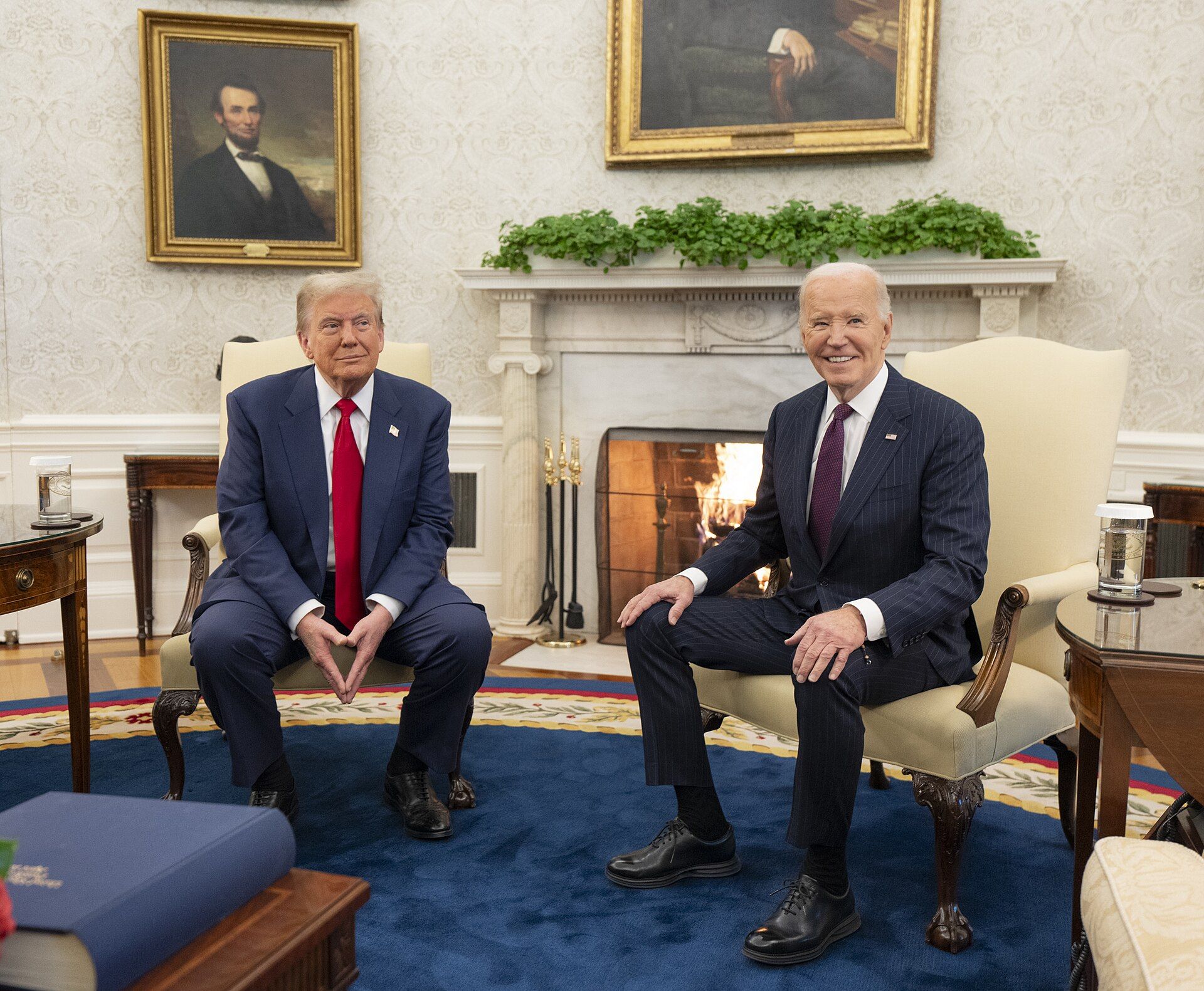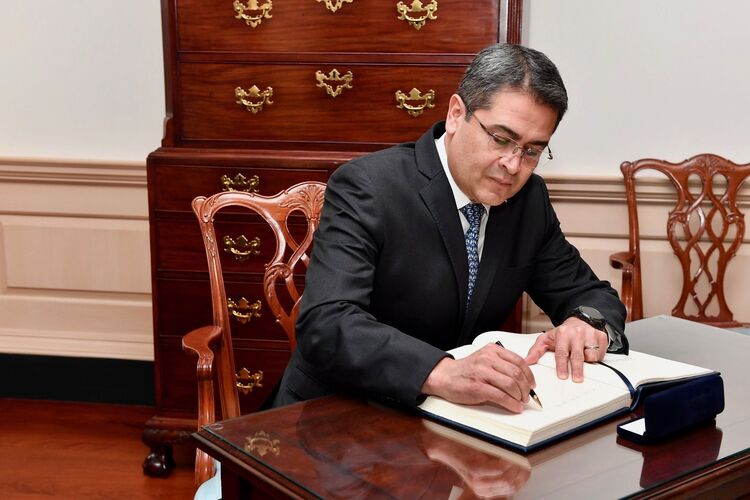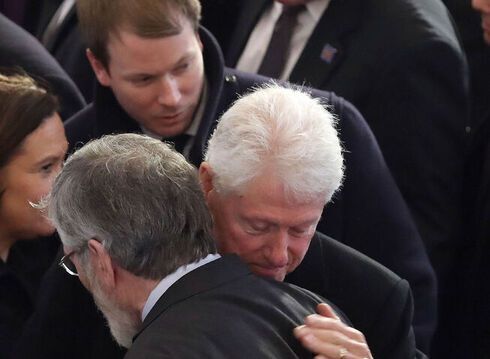By the time this article appears, Donald Trump will have been sworn in again as President of the United States. The freezing temperatures will have caused the first indoor inauguration since January 1985. The indoor festivities mean there will be no repeat of the surreal controversy about crowd sizes following his first inauguration.
Recall that in January 2017, Sean Spicer, Trump’s Press Secretary accused reporters of underestimating the number of citizens on the National Mall and suggested a plot to "lessen the enthusiasm of the inauguration." A few days later, Trump’s Senior Counselor Kelly Anne Conway went on “Meet the Press” and tried to defend Spicer by claiming he was offering “alternative facts.” The moderator, Chuck Todd, responded, "Look, alternative facts are not facts. They're falsehoods."
The “alternative facts” brouhaha was just one flashpoint in Trumpworld’s long-running battle with a media intent on showcasing his peculiar penchant for persistent dishonesty. Even before he was elected president, Time magazine ran an article in May 2016 titled “Donald Trump is BS, Says Expert in BS.” Here are some key lines:
"it is often uncertain whether Trump actually cares about the truth of what he says. This makes it unclear whether his assertion is a lie or merely bullshit…. The distinction between lying and bullshitting is fairly clear. The liar asserts something which he himself believes to be false. He deliberately misrepresents what he takes to be the truth. The bullshitter, on the other hand, is not constrained by any consideration of what may or may not be true. In making his assertion, he is indifferent to whether what he is says is true or false. His goal is not to report facts. It is, rather, to shape the beliefs and attitudes of his listeners in a certain way."
The expert author who wrote these lines for Time was Princeton Professor Harry Frankfurt.
Frankfurt passed in July 2023 and his New York Times obituary explained how a treatise on BS that Frankfurt first published in the obscure journal Raritan in 1986, was re-printed in January 2005 by Princeton University Press as a slight, 80-page book, a book that became a surprise best seller. According to the obit: “The book’s popularity seemed to be fueled in part by the recent re-election of President George W. Bush, many of whose critics viewed his administration . . . as exemplifying the very blitheness about truth that Professor Frankfurt had described.”
It was somewhat ironic that George W became so associated with BS since he was elected in part on the promise to return “honor and integrity” to the White House after the scandals of the Clinton years. Most infamously, of course, was when Clinton went on national tv and claimed “I did not have sexual relations with that woman, Miss Lewinsky.”.
In a 2005 article for The New Republic reviewing Frankfurt’s book, Jonathan Lear reflected on Clinton’s connection to the concept of BS:
though Frankfurt’s discussion is everywhere illuminating, I think he misunderstands the crucially important concept of the bullshit artist. Go back in your visual imagination to the image of Bill Clinton biting his lower lip. We do a disservice to his mastery if we think this is just a phony attempt to appear sincere. That would be ordinary bullshit. What takes Clinton to another level, I think, is that he expects us to recognize his gesture as bullshit and he expects to get away with it precisely because we do. His openness about his own bullshit is meant to be endearing. This is a level of bullshit that Frankfurt’s analysis cannot account for.
Lear’s analysis of Clinton’s BS artistry resonates with the often-rapturous response to Trump’s BS. In 2016, Frankfurt lamented how audiences were lapping-up what Trump was dishing-out: “It is disturbing to find an important political figure who indulges freely both in lies and in bullshit. What is perhaps even more deeply disturbing is to discover an important segment of our population responding to so incorrigibly dishonest a person with such pervasively enthusiastic acceptance.”
During his 2020 campaign Joe Biden tried to play-off Trump’s BS with his “No Malarkey” bus tour through Iowa, and his repeated promise to restore “honesty and decency” to the Presidency. But anyone who had paid attention to Biden’s long career in Washington would have known that Biden is himself a master of malarkey, a first-class BS artist, nevermind being a plagiarist whose careless borrowing of bits from a speech authored by the then leader of the British Labour Party Neil Kinnock sunk his 1988 campaign.
Biden’s unique style of BS has always seemed to me related to what the Canadian literary scholar Hugh Kenner dubbed “the Irish Fact.” In the first chapter of “A Colder Eye,” Kenner’s study of the Irish Literary Revival, he tries to describe a rhetorical phenomenon he observed over many years trying to do research in Ireland: “occasional emphatic assertions” furnished by the speaker “as the structure of discourse prompts.” Kenner observes how these emphatic assertions are an "inextricable mixture of reminiscence and performance” and can often, but not always, be proven factually inaccurate. Kenner warns his readers, and other scholars, that “In Ireland . . . you get told a great deal and had best assume a demeanor of weary appreciation.”
Biden is a kind of virtuoso of what we might call Irish-American facts. For instance, in a speech in 2020, Biden claimed: “My great-grandfather was, they tell me, the first Irish Catholic state senator ever elected in the state of Pennsylvania.” That great-grandfather was Edward F. Blewett, who joined the State Senate in 1907. Biden was only off by about 95 years (as an Irish Catholic named James McSherry had served beginning in 1813). Or consider Biden’s bio of his Uncle Ambrose: "My Uncle Bosie was a hell of an athlete, they tell me, when he was a kid. And he became an Army Air Corps, before the Air Force came along. He flew those single-engine planes as reconnaissance over war zones…And he got shot down in New Guinea, and they never found the body because there used to be − there were a lot of cannibals − for real − in that part of New Guinea." The honorable Uncle Bosie did indeed die when his plane crash landed into the ocean, but the cannibalism seems to be pure ornamentation to the story. Other Biden claims that are not supported by the facts include the repeated assertion that his son Beau “lost his life in Iraq” and that his first wife was killed by a drunk driver.
Listening to Biden and Trump, one cannot help but borrow and rework Billy Martin’s famous quip about Reggie Jackson and George Steinbrenner: “one’s a born BS artist, the other’s convicted.”
But let us not forget the end of the Biden administration involved more serious matters of mendacity than mere BS. Pardoning his son Hunter after adamantly and repeatedly claiming during the campaign that he would do no such thing is the kind of dishonesty that makes so many of us so cynical about politics and criminal justice. And the elaborate, years-long cover-up of Biden’s physical and cognitive decline by his advisors, communication team and media allies is a scandal of historic proportions.
Alternative Facts, BS, Irish Facts, Falsehoods, Lies. It’s no doubt a sad state of affairs that we need to spend so much time and mental energy naming, classifying, and analyzing the various forms of untruth spewed by our political leaders. In February our nation celebrates “Honest” Abe Lincoln and George “I cannot tell a lie” Washington. While the story about the cherry tree is probably a dubious American Fact, the moral of that tale is one we can only hope our future leaders learn better than our last few presidents.
Dr. Stephen Butler is Clinical Associate Professor, Expository Writing Program, New York University.








